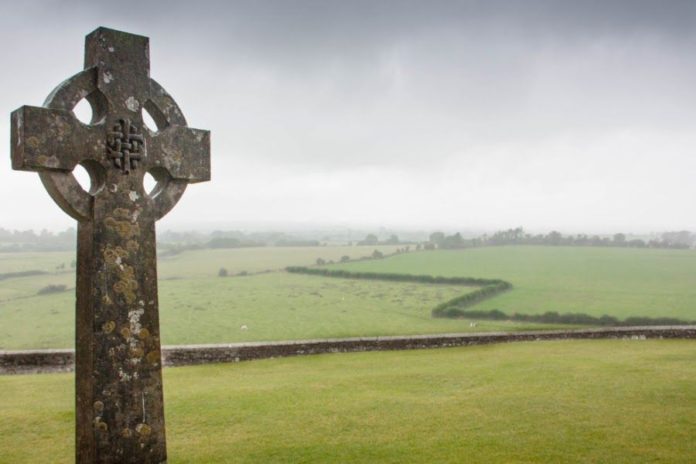
Officials at Ireland’s Department of Children, Equality, Disability, Integration and Youth are also preparing a paper on a “conversion therapy” ban and are working with the Department of Health. The ban includes as “conversion therapy” any form of treatment to change a person’s sexual orientation or gender identity.
Minister for Children Roderic O’Gorman told the Irish newspaper The Journal that the government “must be proactive in banning practices that not only propagandize harmful and discriminatory messages, but ones that also have serious negative consequences on a young person’s mental health, with the potential to inflict long-lasting damage.”
“Legislating for a ban on conversion therapy will send a clear and unambiguous message to everyone, both younger and older, that a person’s sexual orientation, gender identity or gender expression is not up for debate,” O’Gorman said.
Bochanski told CNA the Irish proposal resembles legislation in several U.S. states and other countries and defines ‘conversion therapy’ much too broadly.
“Rather than restricting itself to protecting people from harmful treatment that would clearly be considered professional malpractice or even assault, it defines ‘conversion therapy’ to encompass ‘any practice or treatment by any person’ that addresses a person’s experience of same-sex attraction or gender identity discordance, unless it affirms that person’s identity as LGBTQ,” he said.
“Whether by accident or intentionally, the plain language of the bill – ‘any practice’ — could easily be construed to include conversations in pastoral settings, homilies, catechesis of children or adults, or even the advice given to a person in confession, if these present the Church’s teaching about sexual attraction, sexual identity, and chastity,” said Bochanski. “Surely there are other ways that the state can protect people from harm without so widely chilling honest conversation and compassionate pastoral care.”
Bochanski said backers of a ban often use several definitions of “conversion therapy.” In discussions for the general public, advocates of a ban “typically focus on stories of horrible treatment carried out by individuals and groups (some religious, some secular) with little or no psychological training or expertise.”
“Such stories, which have been featured in articles, books and blog posts, as well as news documentaries and feature films like ‘Boy Erased,’ are alleged to include ‘boot camps’ and other programs that use public confession, physical and mental punishments, exposure to pornography, shaming and other techniques to ‘make a person straight’,” said the priest. “Such harmful practices deserve the condemnation of the Church’s pastors, and regulation by the State, which has a duty to protect its people from harm,” he said.
However, the bills are often presented to legislatures in terms of “regulating medical doctors, psychiatrists and psychologists, and others in the healing professions.”
“People seek the help of such professionals for various motives: to better understand and meet their emotional and relational needs; to find healing for wounds of trauma, abuse or neglect; and to overcome bad habits of anger, greed, lust or intemperance,” said Bochanski. “People who are troubled by their experience of same-sex attractions or gender identity discordance sometimes seek out therapy to understand this experience better and to achieve the integration of sexuality that is at the heart of the Church’s definition of chastity. But unless the counselor affirms that such experiences are natural, inborn and perfectly healthy, their discussions with their patients or clients are often considered ‘conversion therapy’.”
Both political rhetoric and the legislative scope of the bill are likely to have broad influence, Bochanski said, and there is a risk of mischaracterizing Catholic approaches.
“Proponents of the legislation have been increasingly successful in convincing the general public that whenever a parish priest, a college chaplain, or an apostolate like Courage talks to someone about the importance of living virtuously and choosing chaste friendship instead of same-sex intimate relationships, what they’re really doing is practicing ‘conversion therapy’,” he said. “This is a serious mischaracterization, and gives people the mistaken impression that the Church and its ministers are intentionally harming people and trying to ‘pray away the gay’.”
There is some question over what practices even have existed in Ireland. The Irish government’s Department for Equality told The Irish Catholic that the prevalence of conversion therapy is not known.
Patricia Casey, a professor of psychiatry at University College Dublin, told The Irish Catholic she has “never seen conversion therapy for gay people in Ireland or Britain, in my whole career.” She objected that the bill is an “unacceptable intrusion” into psychology, suggesting that it appeared to be “a ruse to try and promote more gender ideology.”
“It’s doing far more than banning conversion therapy, it’s actually dictating how doctors and mental health professionals must interact with people who have gender questions and issues,” Casey said.
The evangelical Christian groups Affinity and the Fellowship of Evangelical Churches also criticized the Irish bill. The ban’s backers include the Anti-Conversion Therapy Coalition, which is active in both Northern Ireland and in the Republic of Ireland.
On April 20 the Northern Ireland Assembly passed a non-binding resolution calling for a ban on conversion therapy “in all its forms.” The motion, which passed 59-24, said that “it is fundamentally wrong to view our LGBTQ community as requiring a fix or cure,” BBC News reports. It called on Communities Minister Deirdre Hargery to put forward legislation to ban the practice. The assembly rejected an amendment that said “legitimate religious activities” like preaching, prayer and pastoral support do not constitute conversion therapy.
Ulster Unionist Party assembly members proposed the original resolution, while Democratic Unionist Party members proposed the failed amendment.








